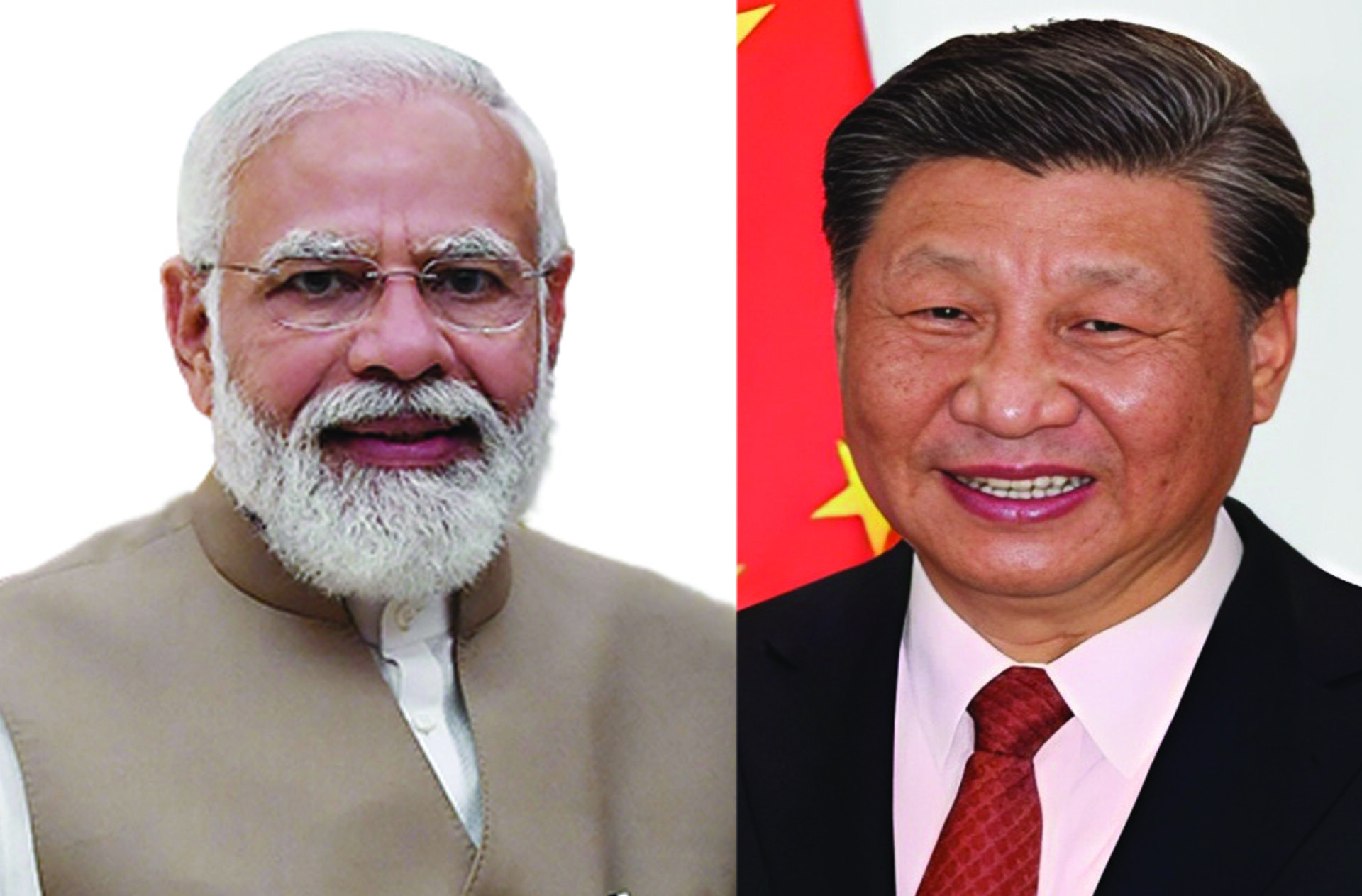India is sending China a clear message ahead of Xi’s participation in the SCO summit, that ‘mutual interest, sensitivity and respect’ should exist if two countries want to maintain normal relations.
New Delhi
Days after US President Joe Biden’s red carpet welcome to Prime Minister Narendra Modi, Russian President Vladimir Putin publicly called the latter a great friend of Russia. The Russian leader heaped praise on PM Modi’s “Make in India”, an initiative that is aimed at reducing New Delhi’s reliance on countries like China for various products. In a telephonic conversation on Friday, Putin and Modi also discussed “several strategic issues” in what must have caused unease in Beijing.
“PM Modi’s historic visit to the United States, where President Biden pulled out all stops to welcome him, followed by Putin showering praise on the Indian Prime Minister, has China’s Xi Jinping in a bind. The unease at PM Modi’s global prestige was reflected in the statements by the government spokespersons from Beijing on several occasions,” diplomatic sources told The Sunday Guardian. Thus far, Beijing had depended on Moscow to widen the distance between Delhi and Washington, but President Putin has, in this context, refused to prod New Delhi too far, and has instead recently worked hard at maintaining the close ties between Russia and India despite Beijing’s frown at such bonhomie.
“Recent diplomatic developments reaffirm India’s foreign policy under PM Modi as independent, robust and dynamic,” a senior diplomat said. “It is also a testimony to PM Modi’s growing global influence which is what rattles Xi,” he said. “The development acquires significance as it has taken place ahead of Chinese President Xi Jinping’s participation in the upcoming virtual summit of Shanghai Cooperation Organisation (SCO) being hosted by India on 4 July. PM Modi will chair the summit,” diplomatic officials said.
There are some other developments that are significant in terms of giving China a clear and blunt signal ahead of Xi’s participation in the SCO summit, say sources. In what is being viewed by diplomats at South Block as a well-calculated strategy to serve a stern message to Beijing ahead of the SCO summit, External Affairs Minister (EAM) S. Jaishankar on Friday said that “the present downturn in bilateral relations was created by China and not by India”. The EAM added that it takes two hands to clap for a relationship to work. Speaking at an event in Kolkata, Jaishankar said, “It finally takes two hands to clap and China too must have the belief in a workable relationship.” Jaishankar also said that relationships between major countries work only when they are based on mutual interest, sensitivity and respect. The minister said he was working hard to make China understand this.
Interpreting Jaishankar’s observations, sources said that “As Xi is expected to lay emphasis on mutual trust and respect, Jaishankar, just days ahead of the SCO meeting, underlined terms like ‘mutual interest, sensitivity and respect’ that should exist if two countries want to maintain normal relations.” “It is a kind of pre-emptive statement by Jaishankar ahead of the SCO Summit to be attended by Xi and Putin,” said an official. “In the border areas, we have resolved a few issues. (But) there are issues (where) we have not,” he said. Jaishankar was clear that India would “continue to do this… in diplomacy, you never give up.” “Thus, the message on how the border could be settled” was also given by Jaishankar ahead of Xi’s speech, high level sources remarked. In another important development that is also significant in terms of giving a message to Beijing, India on Thursday joined the Philippines in asking China to abide by a 2016 legally binding ruling that strongly refuted China’s expansive claims in its dispute with the southeast Asian country over South China Sea (SCS) waters. EAM Jaishankar and his Philippines counterpart Enrique Manalo, who together co-chaired a meeting on bilateral cooperation, sent out this message to China. Jaishankar used the occasion to reiterate the call for a free, open and inclusive Indo-Pacific. Several countries have noted that Beijing only follows its own rules while constantly preaching about a “rules based order” to others.
Another sharp and stern message to China came from the US camp on Wednesday. The envoy of Washington to New Delhi, Eric Garcetti, said that the United States and India can together deploy ships and air forces in the Pacific and the Indian Ocean to ward off any threat to maritime security. He made this remark even as India underlined that the situation in the India-China border areas had not yet turned normal. Watchers of Delhi’s diplomatic enclave say that Ambassador Garcetti got off to a flying start through his work in helping his friend President Biden ensure that the White House handled the Modi visit with panache. Already, PM Modi has given an amply strong message to China during his state visit to Washington. PM Modi’s mention of “the dark clouds of coercion and confrontation…casting their shadow on the Indo-Pacific,” in his address to a joint-sitting of the US Congress, has made the Chinese government restless. India and the US have jointly taken a swipe at China for trying to expand its sphere of influence across the Indo-Pacific and beyond. A senior official said that “democracies will no longer stand by while an aspiring hegemonic power seeks to encroach on the sovereign rights of countries around it”. He added that “ties between ASEAN and India are at a much higher level of contact and truth than before”, pointing out that ASEAN is a “significant asset to the maintaining of a free, open and inclusive Indo-Pacific”.

